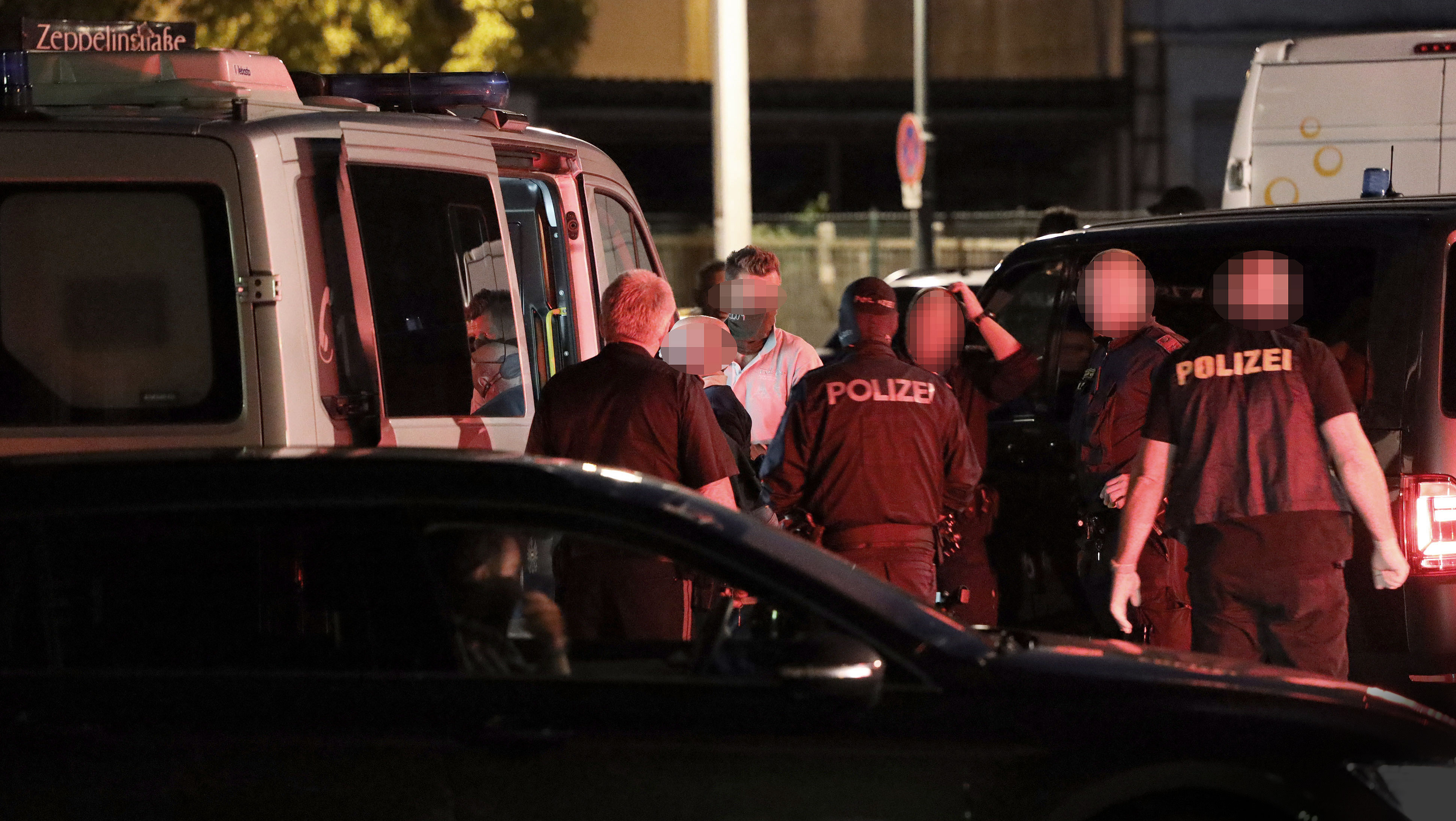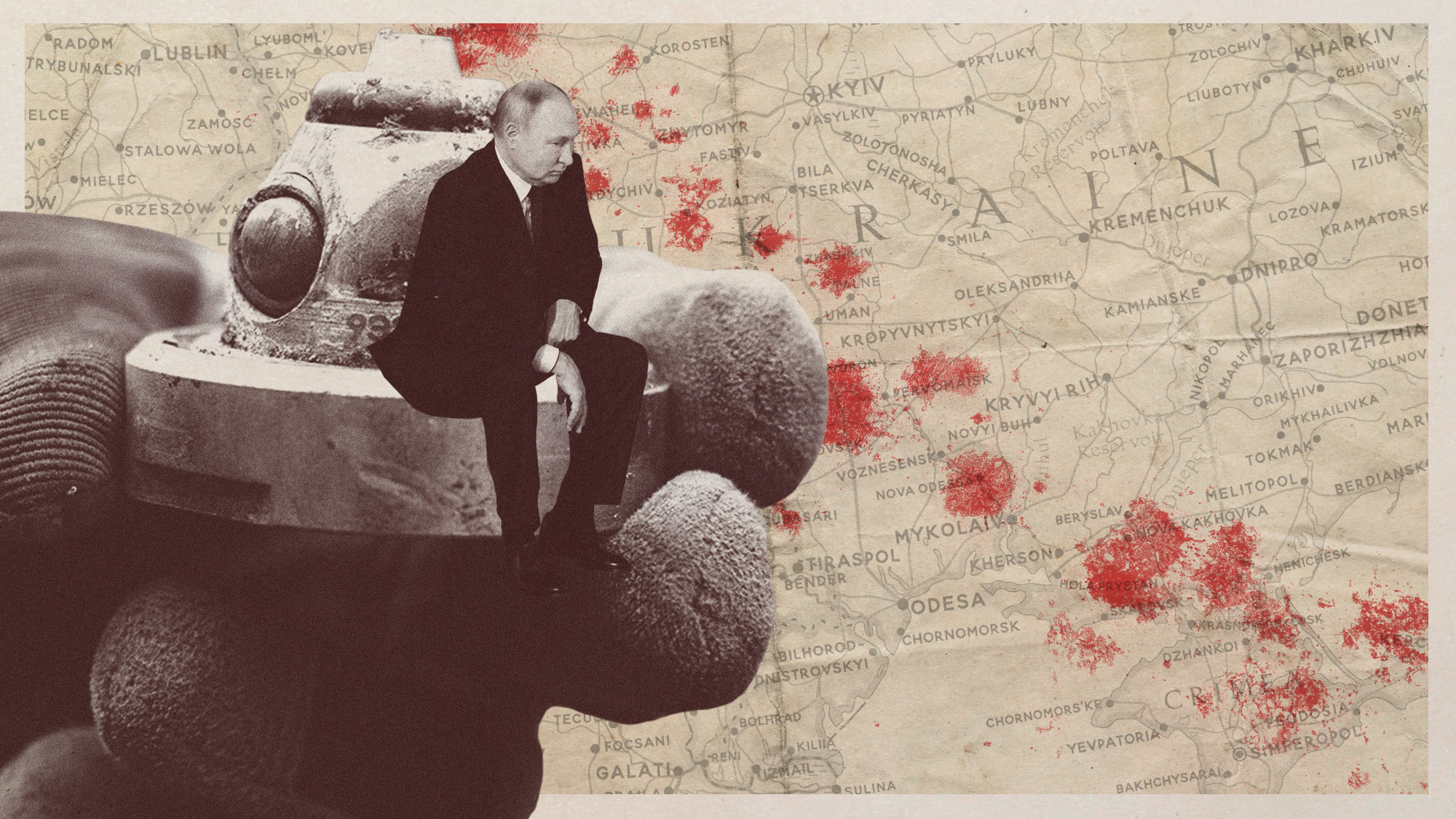Are Chechen assassins roaming Europe - and is Vladimir Putin involved?
Dissident blogger who criticised the Russian leader’s ally becomes latest exile to meet violent end

A free daily email with the biggest news stories of the day – and the best features from TheWeek.com
You are now subscribed
Your newsletter sign-up was successful
A Chechen blogger has been shot dead in Vienna in the latest in a series of killings of dissidents from the Russian republic.
The victim is believed to be Mamikhan Umarov, “who has been living in exile for nearly 20 years” and “had a popular YouTube blog where he was critical of the Chechen government”, says The Telegraph.
According to The Times, Austrian police believe the attack on Saturday night “was a contract killing ordered from Russia”.
The Week
Escape your echo chamber. Get the facts behind the news, plus analysis from multiple perspectives.

Sign up for The Week's Free Newsletters
From our morning news briefing to a weekly Good News Newsletter, get the best of The Week delivered directly to your inbox.
From our morning news briefing to a weekly Good News Newsletter, get the best of The Week delivered directly to your inbox.
His death comes less than a month after Germany formally accused the Russian government of ordering another killing. Zelimkhan Khangoshvili, a rebel commander during the 1999-2009 Chechen war, was shot in the head in a park in Berlin in August 2019.
Vladimir Putin has denied any Russian involvement in Khangoshvili’s death, and the Russian embassy in Vienna has declined to comment on the latest attack.
There seems little doubt, though, that someone is hunting former Chechen rebels and also bloggers who have criticised Chechen leader Ramzan Kadyrov - a man described as “Putin’s protege” by The Washington Post.
Recent attacks include:
A free daily email with the biggest news stories of the day – and the best features from TheWeek.com
• in February, Chechen blogger Tumso Abdurakhmanov survived a hammer attack in the Swedish town of Gavle
• in January, Chechen opposition leader Imran Aliyev died in Lille, after being stabbed 135 times
• in September 2017, a car bomb in Kiev killed Ali Timayev, a Chechen fighter with Georgian citizenship. Ukraine has also accused Russia of involvement in at least three other attacks against Chechens, one of them fatal, on its soil
• between 2003 and 2015, at least eight Chechens were killed in Turkey, and several others survived attacks.
In some of these cases, including the killing of Khangoshvili in Berlin, the assassins appear to have been issued with “valid documents in the name of a fake persona, along with the full registration of such non-existing persons in all government databases”, says Bellingcat. This “could not have been done without the direct involvement of the Russian State”, the investigative website concludes.
But in other cases, the orders may have come not from Moscow but rather Grozny, the Chechen capital.
After “two devastating separatist wars in the 1990s”, The Telegraph explains, the Kremlin “struck a deal with a rebel leader who ruled the region until he was assassinated in 2004. The rebel leader’s son, Ramzan Kadyrov, has been at the helm since then, creating a fiefdom that he rules with an iron fist.”
As Kadyrov has settled scores and consolidated power, assassinations have been “carried out on the Chechen leader’s whim” and with no involvement from Moscow, the New Statesman reports. While Putin trusts Kadyrov to “keep a lid on the ever-simmering Chechen conflict”, he has little control over the “bearded warlord”, the magazine adds.
“Moscow doesn’t really have a say,” according to Russian security analyst Mark Galeotti. “Moscow elevated Kadyrov, funds Kadyrov, and allows Kadyrov to continue - but in some ways they, too, are hostages to him.”
Holden Frith is The Week’s digital director. He also makes regular appearances on “The Week Unwrapped”, speaking about subjects as diverse as vaccine development and bionic bomb-sniffing locusts. He joined The Week in 2013, spending five years editing the magazine’s website. Before that, he was deputy digital editor at The Sunday Times. He has also been TheTimes.co.uk’s technology editor and the launch editor of Wired magazine’s UK website. Holden has worked in journalism for nearly two decades, having started his professional career while completing an English literature degree at Cambridge University. He followed that with a master’s degree in journalism from Northwestern University in Chicago. A keen photographer, he also writes travel features whenever he gets the chance.
-
 Sepsis ‘breakthrough’: the world’s first targeted treatment?
Sepsis ‘breakthrough’: the world’s first targeted treatment?The Explainer New drug could reverse effects of sepsis, rather than trying to treat infection with antibiotics
-
 James Van Der Beek obituary: fresh-faced Dawson’s Creek star
James Van Der Beek obituary: fresh-faced Dawson’s Creek starIn The Spotlight Van Der Beek fronted one of the most successful teen dramas of the 90s – but his Dawson fame proved a double-edged sword
-
 Is Andrew’s arrest the end for the monarchy?
Is Andrew’s arrest the end for the monarchy?Today's Big Question The King has distanced the Royal Family from his disgraced brother but a ‘fit of revolutionary disgust’ could still wipe them out
-
 New START: the final US-Russia nuclear treaty about to expire
New START: the final US-Russia nuclear treaty about to expireThe Explainer The last agreement between Washington and Moscow expires within weeks
-
 What would a UK deployment to Ukraine look like?
What would a UK deployment to Ukraine look like?Today's Big Question Security agreement commits British and French forces in event of ceasefire
-
 Trump peace deal: an offer Zelenskyy can’t refuse?
Trump peace deal: an offer Zelenskyy can’t refuse?Today’s Big Question ‘Unpalatable’ US plan may strengthen embattled Ukrainian president at home
-
 Vladimir Putin’s ‘nuclear tsunami’ missile
Vladimir Putin’s ‘nuclear tsunami’ missileThe Explainer Russian president has boasted that there is no way to intercept the new weapon
-
 How should Nato respond to Putin’s incursions?
How should Nato respond to Putin’s incursions?Today’s big question Russia has breached Nato airspace regularly this month, and nations are primed to respond
-
 Russia’s war games and the threat to Nato
Russia’s war games and the threat to NatoIn depth Incursion into Poland and Zapad 2025 exercises seen as a test for Europe
-
 What will bring Vladimir Putin to the negotiating table?
What will bring Vladimir Putin to the negotiating table?Today’s Big Question With diplomatic efforts stalling, the US and EU turn again to sanctions as Russian drone strikes on Poland risk dramatically escalating conflict
-
 Ottawa Treaty: why are Russia's neighbours leaving anti-landmine agreement?
Ottawa Treaty: why are Russia's neighbours leaving anti-landmine agreement?Today's Big Question Ukraine to follow Poland, Finland, Lithuania, Latvia and Estonia as Nato looks to build a new ‘Iron Curtain' of millions of landmines